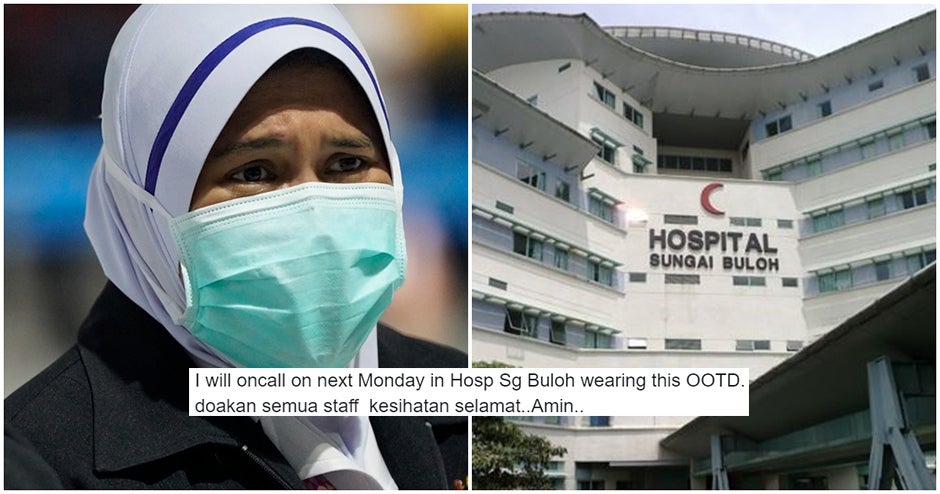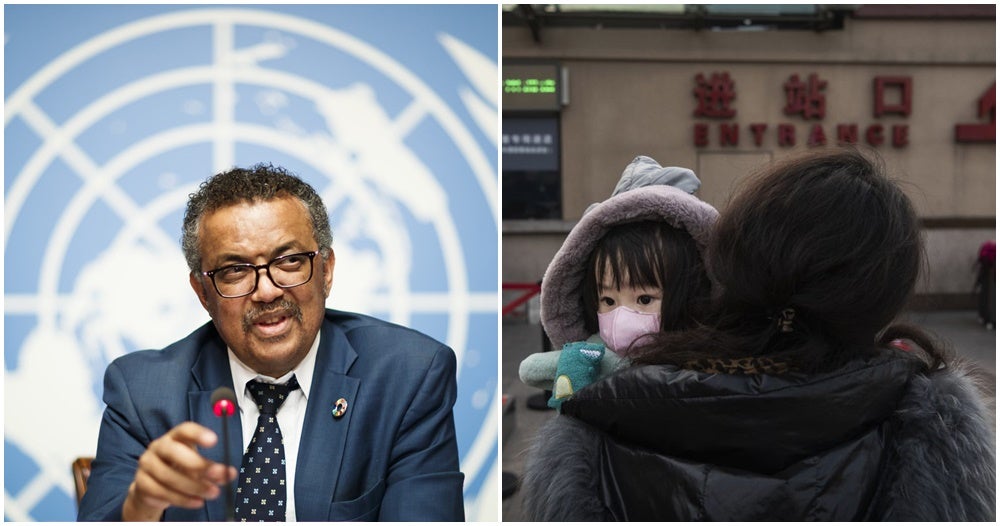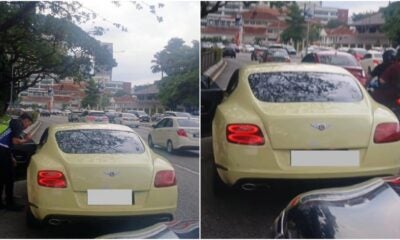All of Malaysia held its breath when the Ministry of Health (MOH) confirmed that four tourists from Wuhan, China who travelled to Malaysia from Singapore tested positive for the viral novel coronavirus disease.
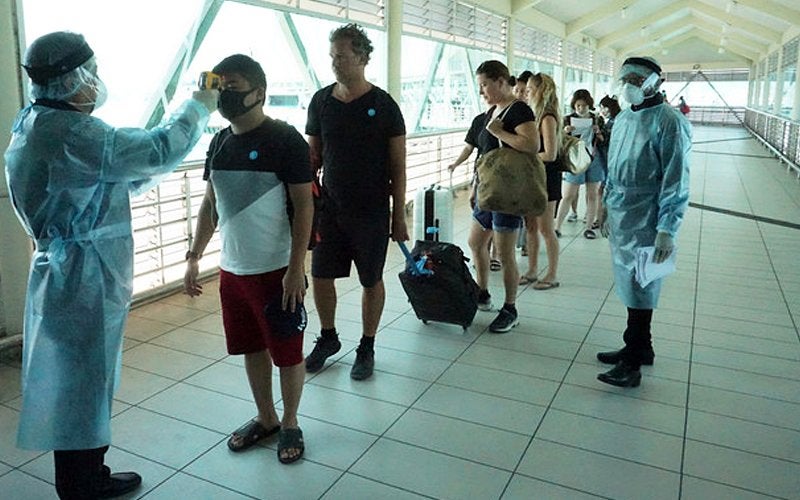
Source: free malaysia today
When medical authorities were alerted of these Wuhan patients’ confirmed diagnosis, they were transferred to Sungai Buloh Hospital, a medical institution known for its reputable infectious disease control lab, as Siakap Keli reports.
But if you think citizens should be worried bout the outbreak reaching our local waters, just imagine how concerned the medical staff designated to treat these patients must feel!
Recently, a doctor identified as Dr Siti Sarah Aishah Suhaidi, from Sungai Buloh Hospital took to Twitter to urge netizens to pray for the medical team in charge of treating the infected patients.
I will oncall on next Monday in Hosp Sg Buloh wearing this OOTD. doakan semua staff kesihatan selamat..Amin.. pic.twitter.com/soKhZsUh1e
— Dr Siti Sarah Aishah Suhaidi (@ctsarahaishah) January 25, 2020
While the majority of Twitter users unsurprisingly extended their kind words by responding to the tweet with prayers and wishes, a couple of others used the opportunity to ask why Malaysia was even accepting these patients. “Why can’t we just send them back to China?”
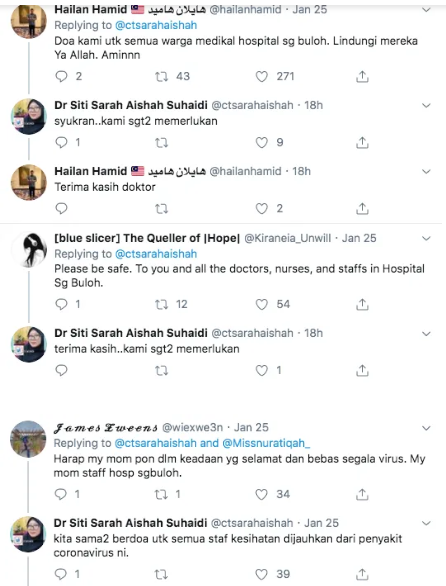
Source: siakap keli
Facebook netizen, Norhidayah Aziz, decided to clear the air and explain why it’s not so simple to just send these infected Chinese nationals home:
Kenapa coronavirus infected hantar ke sungai buloh?Kenapa tak hantar balik China?1) Sg Buloh ada Makmal Kemudahan…
Posted by Norhidayah Aziz on Saturday, January 25, 2020
“1) Sg Buloh is equipped with national public health facilities (MKAK). The Wuhan virus is a novel coronavirus which means that it is a mutated virus the world has not seen before. This virus is “exotic” because there’s no specific medicine to treat or vaccine to prevent it. The lab is also a disease lab that has treated viral diseases such as SARS, MERS and Ebola.
2) The Bio lab in Sungai Buloh has four different levels, one of which is specifically designed to handle exotic pathogens such as the 2019-Ncov (Wuhan virus).
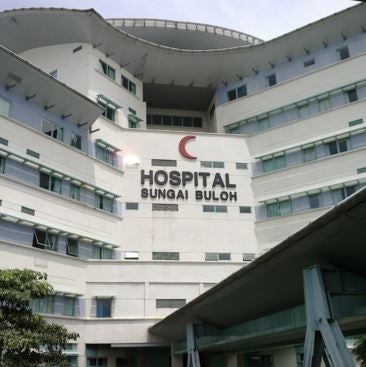
Source: look p
3) You can’t just send any suspected Wuhan virus patient’s blood sample to a BH lab, KPJ lab, or any government hospital lab as they have no expertise in disease control. They don’t have built-in facilities or experienced medical experts trained to handle exotic viruses. Therefore, the blood sample needs to be sent to the nation’s leading public health lab, in Sungai Buloh.
4) Suspected 2019-Ncov patients don’t show symptoms when entering the country. They only can show symptoms of the infection once the incubation period is over. So KKM had to quarantine them to send back patients that tested negative.
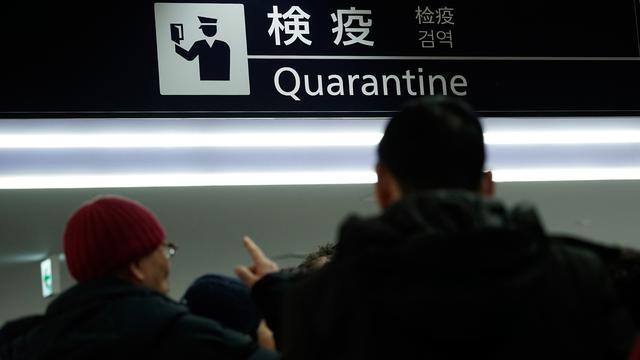
Source: liputan 6
5) Why don’t you send all of them back? This is a question you need to ask yourself. How can we send home infected patients without risking the lives of people around us? They are hosts to thousands, maybe millions of virus cells. Transporting them back to their country would cover areas in and out of the country. What if there are unexpected casualties?
6) It’s not easy to control an exotic virus. Calm down, guys. Nelfinavir Proteases Inhibitor for HIV virus is understood to be effective. Pray and take preventive measures.”
Kudos to the Sungai Buloh medical staff for risking their lives in the name of treating these infected patients. Let’s keep supporting them!
Also read: WHO Apologises For Downplaying Wuhan Virus, Global Risk Level Now Deemed “High”

